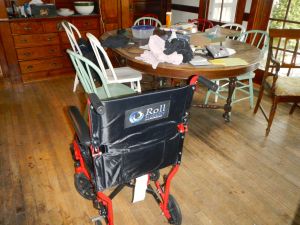The sealed envelope stamped CONFIDENTIAL from our Counseling Center appears in my campus mail the day before classes begin . Some semesters none arrives; other times I may get three or four. Inside is a form letter addressed to all faculty teaching classes for “Student X” indicating that the student has provided proper documentation for a diagnosed (but unspecified) disability. In addition, the letter lists special accomodations that, according to the Americans with Disabilities Act, my institution is required to provide the student to better allow an equal opportunity to learn and to be fairly tested.
Over the 35 years I have received more and more such letters though whether that is due to increases in enrollment of such students, broader definitions of “disability,”increased enrollments of students in general, or increased fears of law suits is unclear to me. Although I actively endorse the concept of equal learning opportunities and I clearly indicate in my syllabus that I am open to private discussion with students about any special needs, I often question whether I should be privy to this information and wonder whether there are better ways or better times to communicate it.
I have taught students with a wide range of ages, abilities and “disabilities.” It is definitely helpful to know in advance if a student has special physical needs (e.g. wheel chair access; special versions of course materials) in the classroom or if their presence may mandate my changing how I teach. In my classroom all students are special and all have special needs. I make special efforts from day 1 to create an atmosphere of trust so that students will feel comfortable alerting me in timely fashion to idiosyncratic special needs or special learning or testing accomodations. But I am also wary of prematurely labeling a student—or of reinforcing their dependency. So many times such students and I have been able to celebrate their academic successes without the recommended accomodations. It is especially thrilling to see them graduate having developed skills to succeed academically.

